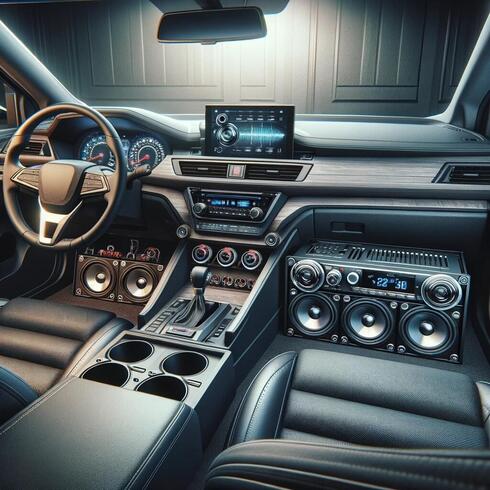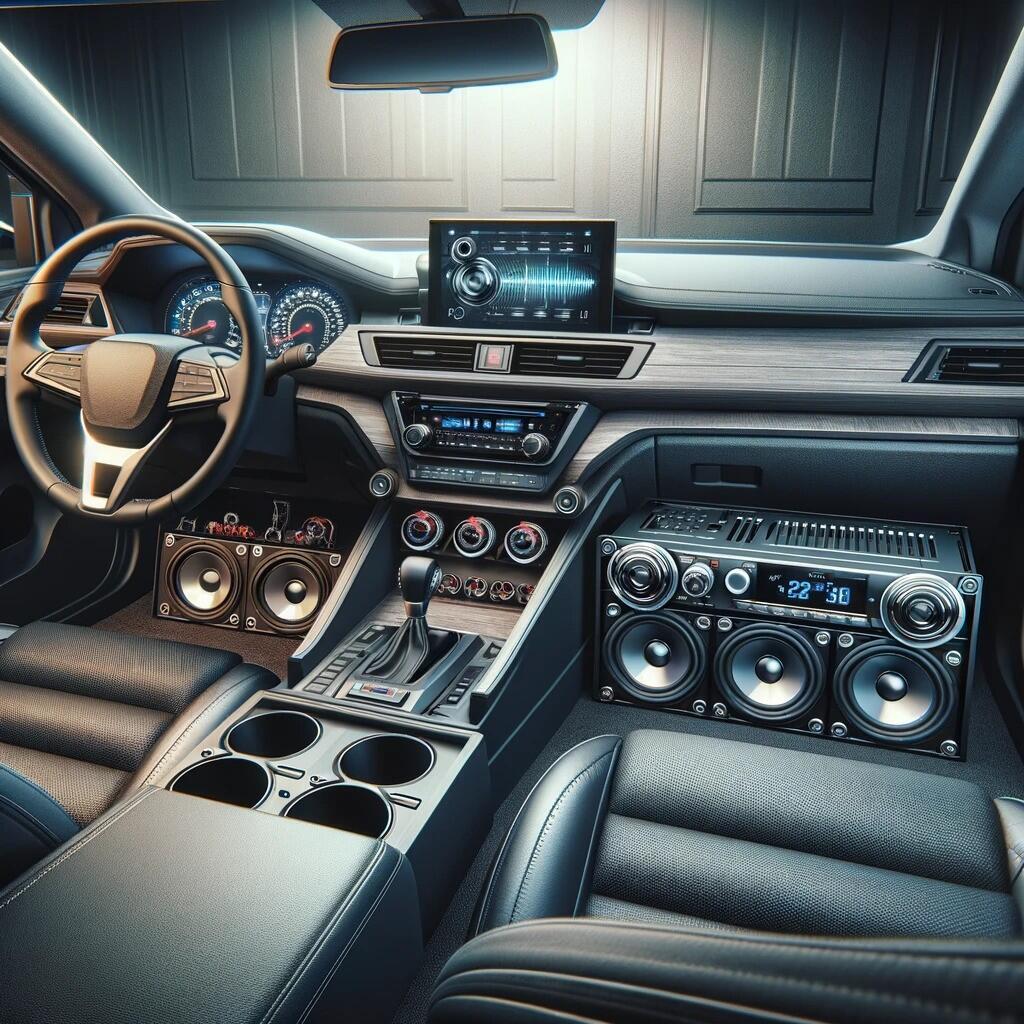
Car Sound System Compatibility: Making Sure All the Components Match Up
Car Sound System Compatibility: Making Sure All the Components Match Up
Crystal clear tunes on the road. Learn about car audio compatibility for a perfect sound system upgrade.
Upgrading your car's sound system can transform your daily commute into a rolling concert hall. But before you crank up the volume and invest in new components, ensuring compatibility between your car and the new equipment is crucial.
Power Play: Matching Amps and Speakers
The heart of a powerful sound system lies in a well-matched amplifier and car speaker combination. Here's what to consider:
- RMS Wattage: This measurement reflects the continuous power an amplifier can deliver and the power a car speaker can handle. Look for an amplifier with RMS wattage that meets or slightly exceeds the RMS wattage of your car speakers. Supplying too little power results in weak sound, while too much risks damaging your speakers.
- Peak Power: While RMS wattage is a more reliable indicator, peak power ratings often get advertised more prominently. Don't be swayed by high peak power numbers – focus on RMS wattage for optimal performance.
Finding the Right Fit: Speaker Size Matters
Car speaker sizes are measured in inches and should correspond to the designated speaker locations in your vehicle. Here's how to ensure a perfect fit:
- Consult Your Car's Manual: Refer to your car's manual or manufacturer's website for specific speaker sizes designated for your vehicle model.
- Measure Existing Speakers (Optional): If the manual doesn't provide details, you can carefully remove a factory speaker to measure its diameter using a ruler.
- Standard Sizes: Many aftermarket car speakers come in standard sizes like 6.5 inches, 6x9 inches, or 4 inches.
Making the Connection: Impedance
Impedance, measured in ohms (Ω), reflects a speaker's resistance to electrical current from the amplifier. Most car stereos are designed to work best with 4-ohm impedance speakers. Here's why impedance matters:
- Mismatched Impedance: Using speakers with an impedance that significantly deviates from what your car stereo is designed for can lead to distorted sound or, in extreme cases, damage your amplifier.
- Double-Checking Impedance: Before purchasing car speakers, look for the impedance rating listed in the specifications. Ensure it matches the impedance requirements of your car stereo.
Factory vs. Aftermarket: Navigating Compatibility
Replacing factory-installed speakers might require additional components to ensure a seamless integration with your car's existing sound system:
- Speaker Adapters: These brackets help fit aftermarket speakers into factory speaker cutouts designed for different sized speakers.
- Wiring Harnesses: These simplify the connection between aftermarket speakers and your car's factory wiring harness, eliminating the need for wire splicing.
When in Doubt, Seek Help from the Pros
If all this info seems overwhelming, consider seeking help from a car audio specialist. They can:
- Assess Your Existing System: A specialist can evaluate your car's current sound system and identify its capabilities.
- Recommend Compatible Components: Based on your budget and sound preferences, they can recommend car speakers, amplifiers, and any additional components that ensure perfect compatibility for a hassle-free upgrade.
By following these guidelines and considering seeking professional help if needed, you can ensure your car's sound system functions flawlessly and delivers the powerful, clear audio you deserve.
First published: 14:06, 03.06.24















